Question
-------------------------
Followup To
Question -
Hi Chrys, I have a pair of Doves and my female lays a lot of eggs (don't hatch) she doesn't sit on them all the time is this normal I live in New England and when I think it's chilly she is sitting by her eggs but not on them. How warm do they need to be does she know something I don't.
Answer -
Hi, Debbie. Thanks for posting.
Definitely yes, your doves know a whole lot more than you do about what is going on! First of all, are you sure you have a true pair of doves...a male and a female? Female birds can lay infertile eggs without being with a male, and it can be difficult to sex doves. If they lay more than 2 eggs in a clutch, then you could have 2 females laying eggs (or even just 1). When doves have eggs, the pair share the duties of incubating. Normally, the male sits 12 hours during the day and the female sits the 12-hour graveyard shift. In some pairs, this is a hard and fast rule, and when one or the other doesn't take his/her shift, the eggs go cold. In other pairs, each shares in the duties, i.e., each sits on 1 egg. And other variations. So, I can't say exactly what might be happening with your pair with the information you posted. You could have a bird that just doesn't want to sit, which is usually rare, maybe they're sitting more than you think (?), etc. Are there any other details you can provide?
Normally, the parent birds know exactly what the temperature is of their eggs, they know if they are fertile or not, etc., and they regulate these things by getting off the eggs if they become too warm, and, likewise sitting as tightly as possible if they are too cool (sometimes creating a brood patch on their chest to provide maximum warmth), and getting their breast feathers wet to add humidity to the eggs if needed. However, their are some birds who just don't know what to do, don't want to do it, may be too dumb...many reasons. Is there anything disturbing them, like other animals, too much disruption (are they in the house or outside), etc.?
If they are incubating them for a week or 2, then stopping, perhaps they know their eggs aren't fertile or have died in the shell from contamination, etc., so they just stop incubating them.
Chrys Hi Chrys, yeah I got a boy dove and a girl dove for sure. Once she laid two eggs and the babies were born but died soon after. The dad use to sit on the eggs but mom has got real bitchie since she has laid over 20 eggs and none have hatched so she tends to keep him away from the eggs but he would like to help. I see them mate and she lays eggs but lately she seems retarded about sitting right on the eggs. How do the eggs get contaminated if I could help that situation I'd feel better.
AnswerHi, Debbie. I'm not saying that egg contamination is the problem...just one possibility for why they may not be hatching. However, if the eggs aren't getting incubated (if the parents aren't sitting on the eggs), this is likely the problem.
Eggs shells are porous, that is, they have pores all over the shell to allow the eggs to breathe, etc. Because of this, bacteria, viruses, etc., can penetrate through the egg shell causing a developing embryo to die. This is why it's important to keep an area clean where eggs have been laid. Parents can bring problems to the eggs by bringing nasties back to the nest via their feet, etc., but nasties exist everywhere, so egg contamination can occur from various sources. But again, I believe most of the problem you have, based on what you've posted, is that the eggs aren't being incubated. Dove's also have a high mortality rate like most birds do, so their first hatched babies could have died from not being kept warm enough (if the female isn't incubating the eggs, she most likely isn't keeping any babies warm after they've hatched), or they could have succumbed to bacteria, virus, etc., either after they hatched or when they were in the shell that carried over after they hatched.
You could try removing the female after the eggs have been laid and see if the male can incubate them all by himself. However, he might only incubate half a day at a time. Otherwise, you could try incubating any eggs yourself in an incubator. If you try the latter, you'd have to handfeed them yourself from the day of hatching, which isn't an easy task if you don't have the experience.
Chrys

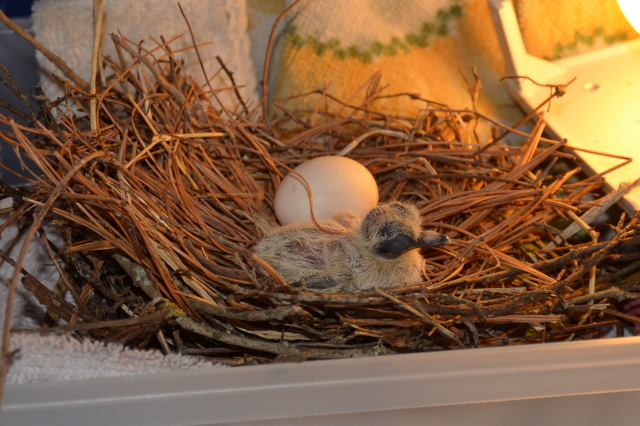 mourning dove
Question
baby mourning dove
Hello,
My boys found a baby
mourning dove
Question
baby mourning dove
Hello,
My boys found a baby
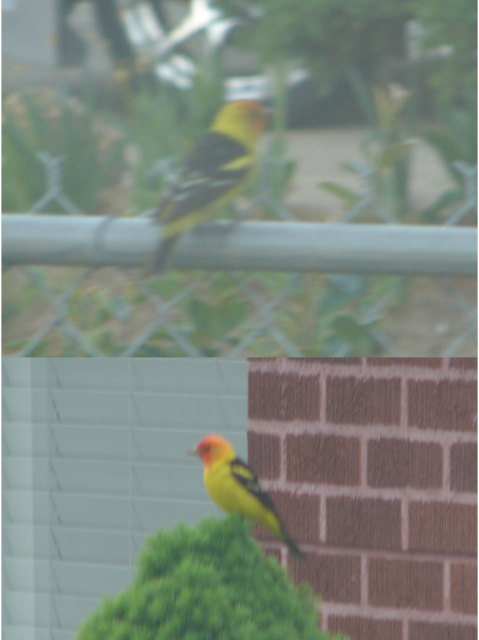 Wild or Domestic?
Question
Pretty Birds
There are these three birds in my
Wild or Domestic?
Question
Pretty Birds
There are these three birds in my
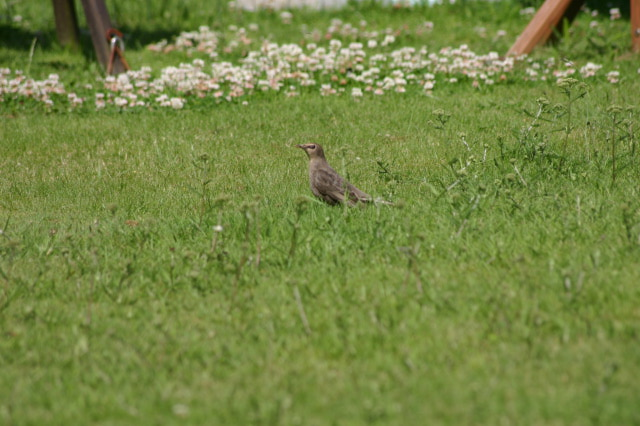 Identification of a bird
Question
Bird name
Please can you advise what th
Identification of a bird
Question
Bird name
Please can you advise what th
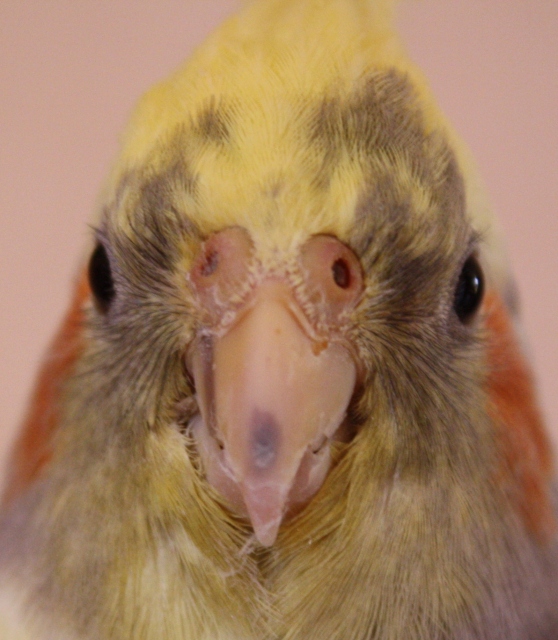 Bruise-like discoloration of beak (Cockatiel)
QuestionSasha
QUESTION: Our Cockatiel has develo
Bruise-like discoloration of beak (Cockatiel)
QuestionSasha
QUESTION: Our Cockatiel has develo
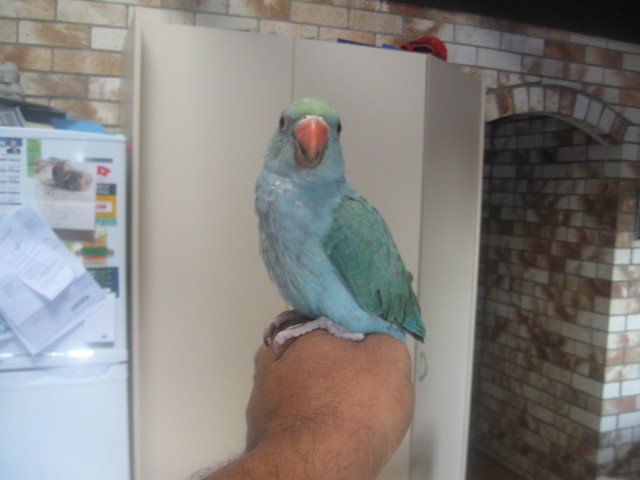 Color of my indian ringneck
Question
Boots
I have an eleven week old male ringneck
Color of my indian ringneck
Question
Boots
I have an eleven week old male ringneck